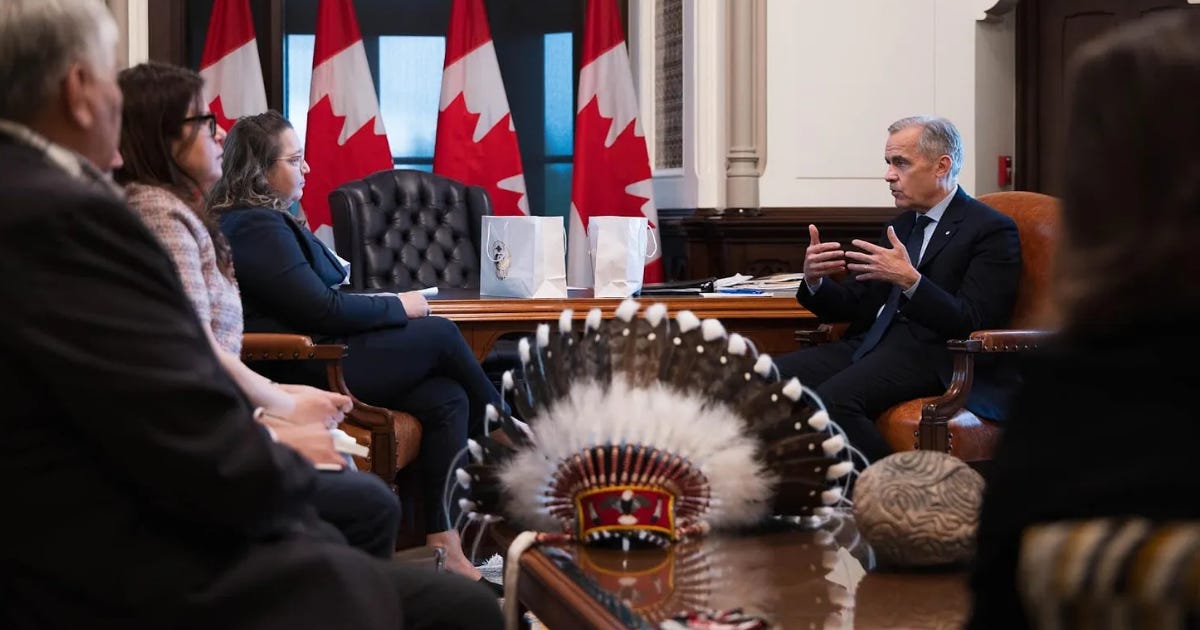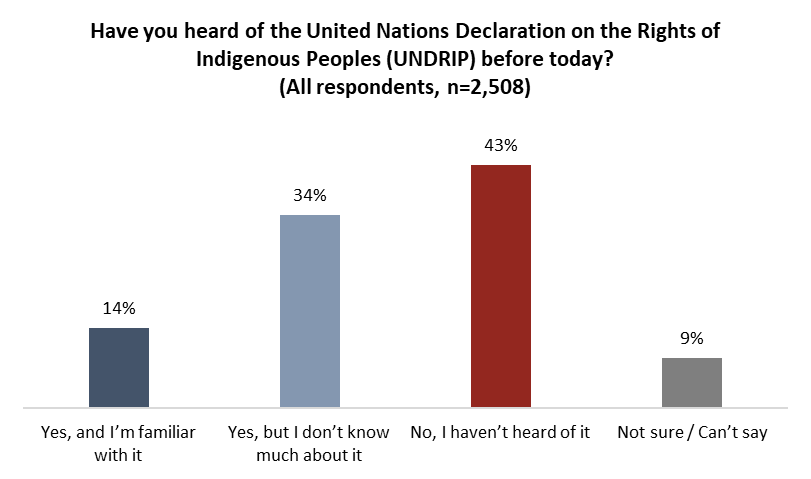OP-ED: Most Canadians, including Carney, misunderstand indigenous consultation rights
"A recent public opinion poll by the Angus Reid Institute found that many Canadians favour meaningful consultation with and accommodation of Indian Bands for projects deemed in the national interest."
Author: Hymie Rubenstein
A recent public opinion poll by the Angus Reid Institute found that many Canadians favour meaningful consultation with and accommodation of Indian Bands for projects deemed in the national interest. Two-in-five believe that this is needed, but that the government and companies building the projects should retain final say (40%), a view indigenous leaders and organizations have long resisted.
Prime Minister Mark Carney has convened summits in recent months with indigenous leaders to emphasize consultation as central to his government’s Bill C-5, the One Canadian Economy Act meant to streamline regulatory reviews of development projects and to overcome provincial trade barriers, among other features.
Carney has repeated that such development will recognize and affirm Section 35 of the Constitution Act, 1982, and the rights set out in the United Nations Declaration on the Rights of Indigenous Peoples (UNDRIP), including the principle of free, prior, and informed aboriginal consent.
Angus Reid poll subjects were questioned about both UNDRIP and Bill C-5, on the implicit assumption that they were knowledgeable about both.
There’s a well-founded adage about survey research: “garbage in, garbage out,” meaning the quality of the input (in this case, citizen knowledge) determines the quality of the output (in this case, quantitative results). If biased researchers formulate the poll questions, don’t represent a randomized sample of the larger population, or exceed the knowledge level of the survey participants, the results are likely to be incorrect.
The last two of these limitations characterize this Angus Reid poll.
Angus Reid conducted its online survey from July 24-29, 2025, among an allegedly “randomized sample of 2,508 Canadian adults drawn from the Angus Reid Forum,” a self-selected cohort of Canadians that anyone with an email address can join. This challenges the poll’s claim of being a “randomized sample” of adult Canadians.
Sampling errors are compounded by participant ignorance: Despite Parliament enshrining UNDRIP into law in 2021, many Canadians have never heard of it. Two-in-five (43%) are unaware of UNDRIP, while 34% say they know little about its contents.
Moreover, the impact of the 77 per cent who claimed they knew little or nothing about the UNDRIP Declaration was never weighed against any of the other poll questions.
AS for Bill C-5, several Indian Bands have launched lawsuits in response to these laws, calling them unconstitutional.
The Angus Reid survey indicates that most Canadians have been following these events in recent months, with three-in-five (58%) having at least seen media coverage and had occasional conversations about it. Still, this leaves 42% of people who have heard little or nothing about them. Yet, their views were still considered in other poll questions.
This includes the controversial question of indigenous veto power. The same proportion of poll subjects claimed support and opposition, respectively, to indigenous views. One-quarter say Indian Bands should have a veto if projects infringe on their traditional territory. The same proportion claims that infrastructure in the national interest should proceed regardless of objections. Meanwhile, controversies around the meaning of “traditional territory” were not described by Angus Reid.
Mark Carney has recently revealed himself to be a member of the veto block.
According to Blacklock’s Reporter, Prime Minister Mark Carney “revised” his first major Parliamentary Bill as Canada’s leader on August 8 by mandating that industrial projects deemed fit for speedy approval “must” serve the interests of indigenous peoples.
This unilateral reinvention repudiates the legal text of Bill C-5, passed into law on June 26, which only states that indigenous interests “may” or “can” be considered.
More importantly, Carney failed to reveal that neither Bill C-5 nor the numbered treaties give Indian Bands veto power over development projects.
Intergovernmental Affairs Minister Dominic LeBlanc told the Senate on June 17 that the terms of the Bill would be defined after it was signed into law. “It is very difficult to define in specific terms,” he said. “Everyone has their own theory.”
If this sounds like the Bill is long on intent but short on detail, its contents prove it. The Bill says, “Before recommending that an order be made … the Minister must consult … with indigenous peoples whose rights are recognized and affirmed by section 35 of the Constitution Act, 1982, may be adversely affected by the carrying out of the project to which the order relates.”
What such a “consultation” would entail is left to one’s imagination.
Many Indian bands and indigenous organizations are unconvinced about this promise of consultation, expressing anger over the lack of meaningful consultation during the Bill’s development. This anger is misplaced, however, because the courts have already ruled that aboriginal people do not have a right of prior consultation on parliamentary bills.
Yes, the Canadian Constitution Act, 1982, through Section 35, recognizes and affirms aboriginal and treaty rights. However, the Supreme Court of Canada has clarified that this duty to consult primarily applies to the executive branch of government (e.g., the Cabinet and government departments) when implementing or administering laws. It generally does not extend to the legislative branch (Parliament) during the process of creating these laws.
Moreover, consultation and negotiation, a process that regularly takes years to complete, would negate the purpose of the bill “to urgently advance projects throughout Canada, including in the North, that are in the national interest.”
Asked by senators whether any group held a veto over projects, LeBlanc gave the cynically cavalier reply, “Veto is the aggressive word you can use. Vito’s is also a restaurant on Mountain Road in Moncton.”
No wonder so many Canadians have lost faith in both public opinion polls and the truthfulness of our national leaders.
Hymie Rubenstein, editor of REAL Indigenous Report, is a retired professor of anthropology at the University of Manitoba and a senior fellow at the Frontier Centre for Public Policy.




So if so called aboriginal people can claim land rights here going back centuries, why can’t those of us go back to our countries of origin and take back what was taken from us?
While I know there were nefarious actions perpetrated on our indigenous population, we simply cannot go back. The best for everyone is to move forward and learn from our mistakes, theirs and ours. Continuing to provide funds without accountability should be one of the first things that changes.
All Angus Reid Polls are B.S.
Any professor from Manitoba has no business telling anyone what they should do or believe.
This is nothing but Carney Liberal NDP narrative.
End the Indigenous nonsense, work for a living or perish, this is the 21st Century.